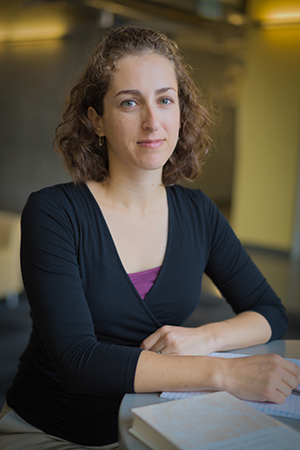
 Young people who are neither employed nor pursuing an education are vulnerable to mental health issues like depression and anxiety, but their commitment to finding work is surprisingly strong according a recent study coauthored by UC Merced Professor Sidra Goldman-Mellor.
Young people who are neither employed nor pursuing an education are vulnerable to mental health issues like depression and anxiety, but their commitment to finding work is surprisingly strong according a recent study coauthored by UC Merced Professor Sidra Goldman-Mellor.
Long interested in the relationship between unemployment and mental health, Goldman-Mellor wanted to see how young people’s mental health impacted their path in the workforce. Her team’s research — published in the Journal of Child Psychology and Psychiatry — focused on British 18-year-olds who were not in employment, education or training (“NEET” status).
While the researchers were not surprised by the link between unemployment and mental health issues, they were surprised at how hard the NEET youths were trying to find work and how despondent they were about their chances of getting ahead.
“The majority of 18-year-olds we spoke to were trying to find jobs and were committed to the idea of work, although they are hampered by a lack of skills,” Goldman-Mellor explained. “Compared to their peers, NEET young people are also contending with substantial mental health problems, including depression, anxiety, substance abuse and aggression control. These psychological challenges appear to put them at a disadvantage when seeking employment.”
The study found that nearly 60 percent of NEET youths had already experienced more than one mental health problem in childhood or adolescence, compared to around 35 percent of young people who were in education, employment or training. The researchers also found that NEET participants were less equipped to succeed in the job market, reporting fewer “soft” skills such as problem-solving, leadership and time management.
Goldman-Mellor earned her Ph.D. in epidemiology — the study of the causes, distribution, and prevention of disease in populations — from UC Berkeley in 2012. It was during her graduate studies there that she became interested in the areas of depression and suicidal behavior.
“A number of my friends had struggled with severe depression, and I’d seen the devastation that it can wreak on someone's life,” said Goldman-Mellor, a professor with the School of Social Sciences, Humanities and Arts. “Initially, I was interested in depression as an evolutionary puzzle: How can an illness that can be so detrimental to someone's life persist in human populations?”
She soon broadened her research to encompass applied and practical questions, such as the social factors that affect population risk for depression and suicide, and how violence contributes to mental health problems among adolescents.
At UC Merced, Goldman-Mellor found her first job as a professor. She said she’s excited about the chance to work with distinguished colleagues on cutting-edge research, but the highlight has been interacting with undergraduate students in the classroom.
“Not everyone is going to fall in love with epidemiology,” she said. “But it is so rewarding to see that spark of curiosity come alive in your students' eyes, and hear them start to ask questions about how diseases originate, why certain people are more at risk than others for health problems, and so on.”
In addition to teaching, Goldman-Mellor has two new research projects in the works. The first investigates how living in a violent neighborhood affects adolescents' risk for depression and suicidal behavior; the second examines characteristics of people who seek medical care in emergency departments because they have attempted suicide or been a victim of violence.
Goldman-Mellor, who previously worked with colleagues in England, will be using data from California for the first time.
“It's exciting to feel like my research is really relevant to the San Joaquin Valley and the wider state,” she said. “There are so many health problems that need addressing here, and what place is better positioned to do that than UC Merced?”






